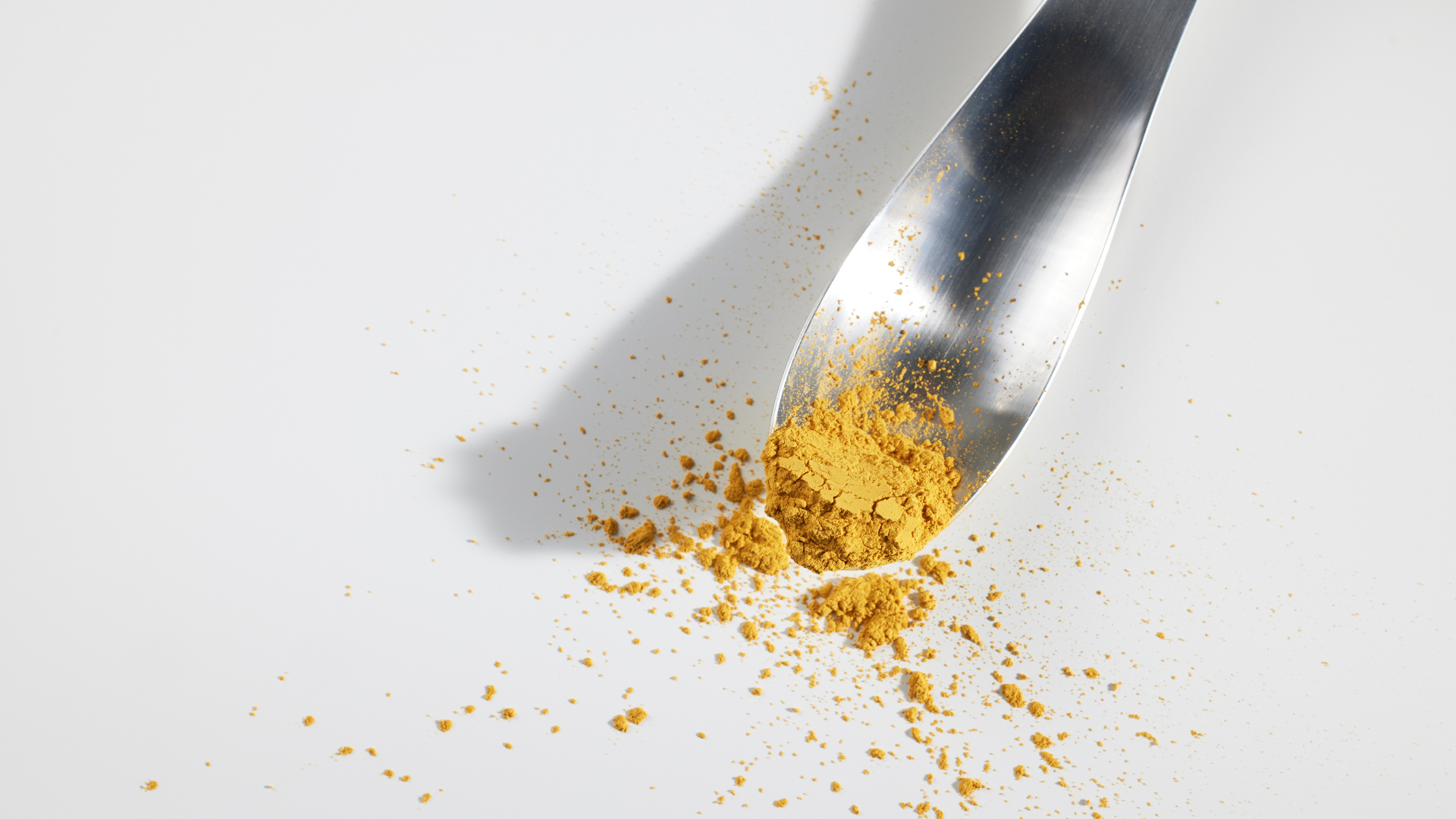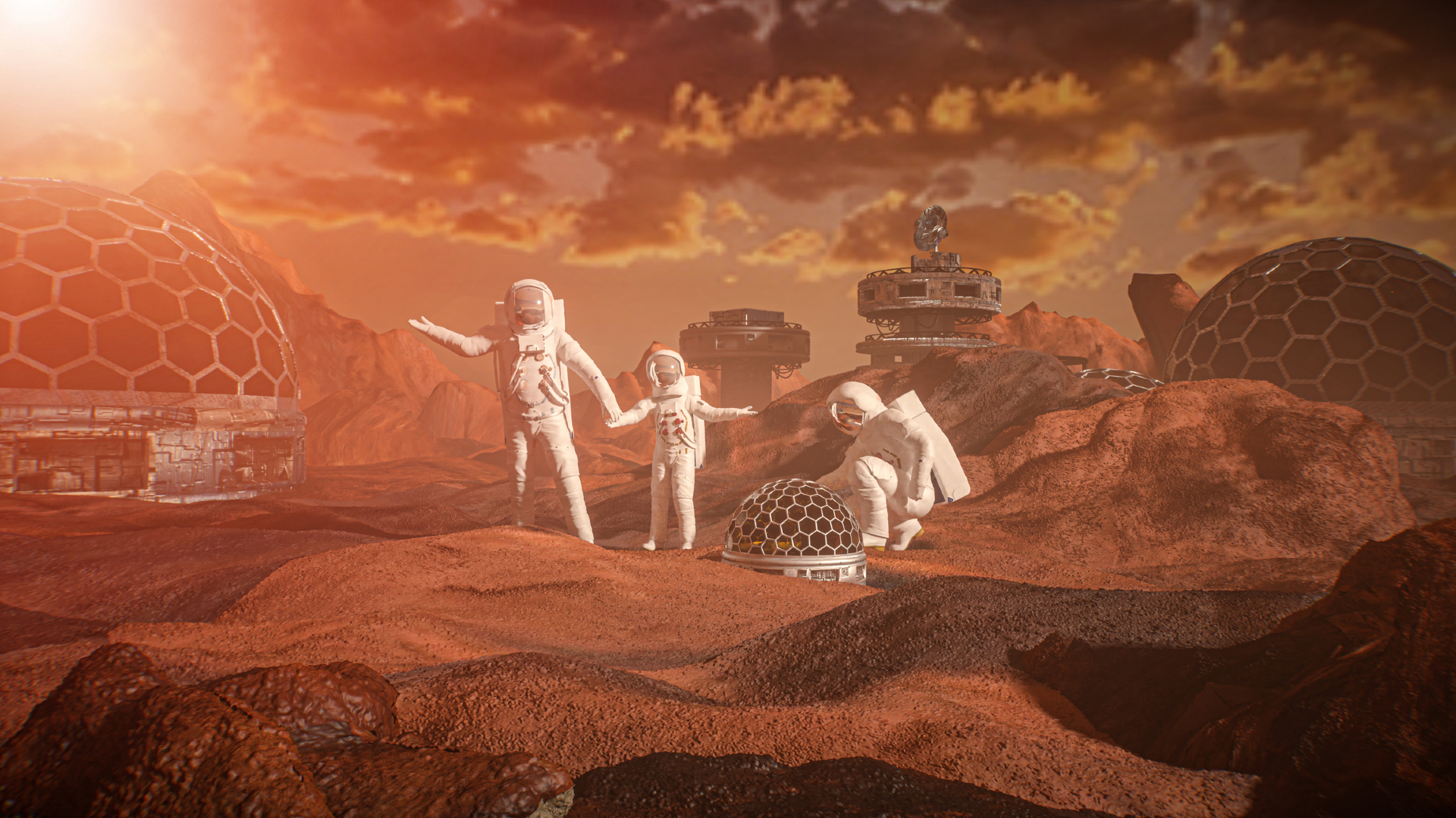Europe wants to make space food out of thin air and astronaut pee
"This project aims at developing a key resource which will allow us to improve human spaceflight's autonomy, resilience and also the well-being of our astronauts."

Breaking space news, the latest updates on rocket launches, skywatching events and more!
You are now subscribed
Your newsletter sign-up was successful
Want to add more newsletters?

Delivered daily
Daily Newsletter
Breaking space news, the latest updates on rocket launches, skywatching events and more!

Once a month
Watch This Space
Sign up to our monthly entertainment newsletter to keep up with all our coverage of the latest sci-fi and space movies, tv shows, games and books.

Once a week
Night Sky This Week
Discover this week's must-see night sky events, moon phases, and stunning astrophotos. Sign up for our skywatching newsletter and explore the universe with us!

Twice a month
Strange New Words
Space.com's Sci-Fi Reader's Club. Read a sci-fi short story every month and join a virtual community of fellow science fiction fans!
While space agencies have their eyes set on astronaut missions to the moon, Mars and beyond, there are quite a few hurdles in the way — and one of the biggest is food.
As it stands, food is produced on Earth, then transported to the International Space Station (ISS). While that's feasible for missions in low Earth orbit, it's impractical (costly at best, and technically unfeasible at worst) for more distant destinations.
So the European Space Agency (ESA) has launched project HOBI-WAN ("Hydrogen Oxidizing Bacteria In Weightlessness As a source of Nutrition"), part of the its Terrae Novae Exploration Programme, to test a powdered protein called Solein that can be manufactured in space with very few resources.
"This project aims at developing a key resource which will allow us to improve human spaceflight's autonomy, resilience and also the well-being of our astronauts," Angelique Van Ombergen, ESA's chief exploration scientist, said in a statement. "For human beings to be able to implement long-duration missions on the moon, or even one day to go to Mars, will require innovative and sustainable solutions to be able to survive with limited supplies."
Solein could be one such solution. It's a highly versatile powdered protein from Finnish food technology company Solar Foods that's made from microbes, air and electricity, via a gas fermentation process.
While Solar Foods has demonstrated the technology on Earth, slightly different techniques will need to be used in space. For instance, on Earth, ammonia serves as a nitrogen source for protein synthesis. But in space, the source would be urea — an organic compound found in urine.
Over the next eight months, Solar Foods will work with prime contractor OHB System AG on the ground to develop the technology necessary to test Solein production in space. If successful, Solein production would then be tested aboard the ISS.
Breaking space news, the latest updates on rocket launches, skywatching events and more!
"The aim of the project is to confirm that our organism grows in the space environment as it does on the ground, and to develop the fundamentals of gas fermentation technology to be used in space — something that has never been done before in the history of humankind," Arttu Luukanen, senior vice president of space and defence at Solar Foods, said in a statement.
"The behavior of gases and liquids in microgravity is vastly different due to lack of buoyancy, which can drastically affect the transport of nutrients and gases for Solein microbes," Luukanen added.

Space.com contributing writer Stefanie Waldek is a self-taught space nerd and aviation geek who is passionate about all things spaceflight and astronomy. With a background in travel and design journalism, as well as a Bachelor of Arts degree from New York University, she specializes in the budding space tourism industry and Earth-based astrotourism. In her free time, you can find her watching rocket launches or looking up at the stars, wondering what is out there. Learn more about her work at www.stefaniewaldek.com.
You must confirm your public display name before commenting
Please logout and then login again, you will then be prompted to enter your display name.
